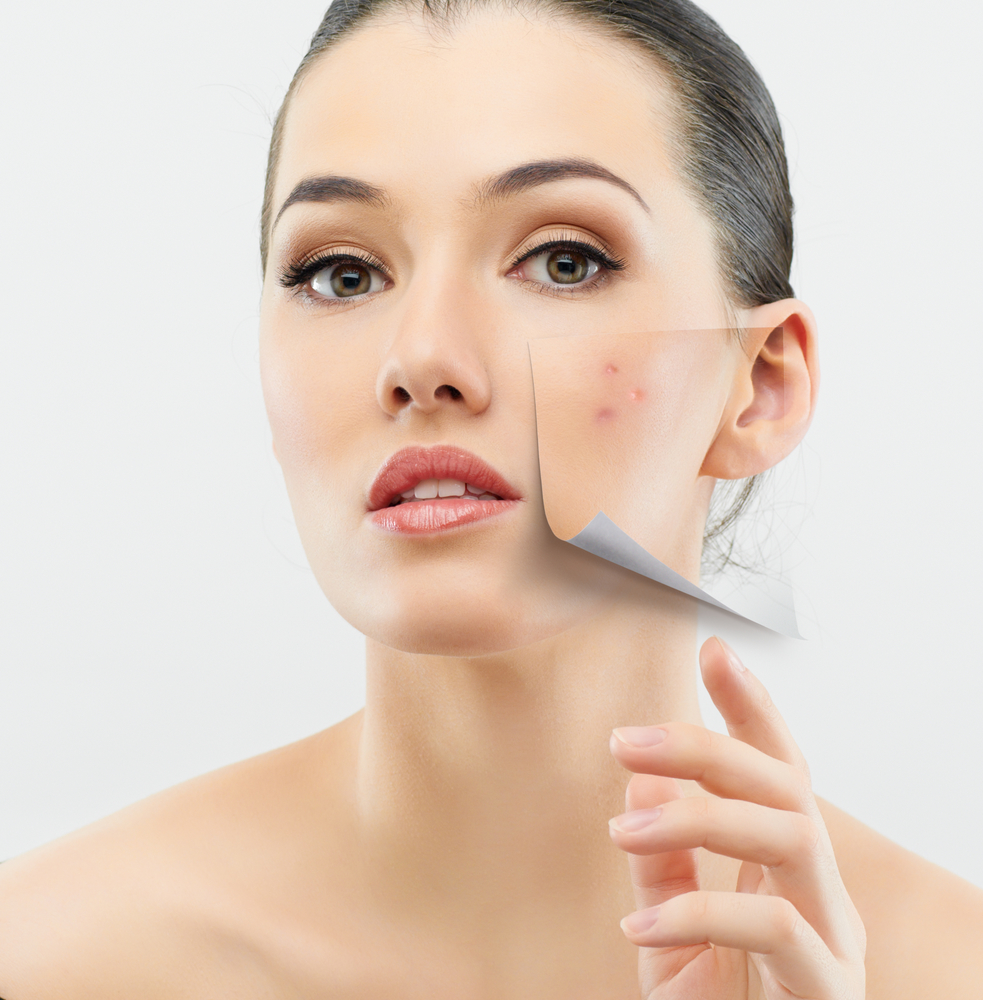 BY: Dominick L. Flarey, Ph.D, RN, ANP-BC
BY: Dominick L. Flarey, Ph.D, RN, ANP-BC
Acne has been found to have a genetic component to it. Its root cause is due to the skins pore cells turning over a large number of dead cells. This pathophysiology results in the development of acne. This is one scientific, modern day theory. Vitamin A works well for acne as its mechanism of action is to prevent and or significantly slow the rapid proliferation of cell turnover. (1) The pharmaceutical companies have certainly capitalized on its high level of effectiveness. We see evidence of this in the prescription medications Isotrex and Accutane, in which Vitamin A make up a major component of the products. (2)
How can acne be treated effectively? We have found that there are really two main paths to its effective care and treatment: medications and nutrition. In both of these scenarios Vitamin A plays a significant role. A patient suffering with acne may be guided by a licensed health care practitioner to carefully increase their intake of Vitamin A in their diet through vitamin A enriched foods or by taking supplements. Another way is for clients to take prescribed medication treatments such as facial creams and lotions that contain Vitamin A, and have proven to be very effective treatments. (3)

Many patients prefer to use dietary means to boost their Vitamin A levels. However, this can be a difficult way to obtain the added boost needed to help with their acne problems. As such, it is often recommended by professional Dieticians and licensed Health Care Prof
essionals that clients also take a daily supplement of the Vitamin in order to provide effective care for acne. Many will recommend a dose of 5,000 IU a day. (4) It is important that clients ask their health care provider what is the correct and recommended does to take for them. Clients should not self-medicate. Vitamin A is a fat -soluble vitamin and it stores up in the body. Taking too much Vitamin A can cause a toxicity and can ultimately be harmful.
It is interesting to note that one study that was conducted using the Vitamin to treat acne showed that is was non-effective. Doses used were somewhere between 50,000 and 100,000 IU. The researchers then repeated their study using very high doses; 300,000 IU for women and 500,000 for men. The subjects remained on these large doses for three to five months and then were gradually weaned off. The outcomes of the repeat study showed that the high doses were effective in treating the acne. It is noted that after controlling the acne in the research subjects, they went on to continue treatments without the use of Vitamin A, to remain in remission. (5)
More commonly today, physicians and other prescribing licensed health care practitioners are providing patients with topical creams and ointments which contain Vitamin A and are applied directly on the face or other areas of the body where the acne is. The pharmaceutical industry actually alters the Vitamin A and develops it into a Retinoid. The Mayo Clinic has stated that retinoids are actually a very preferred treatment for acne. They heal the skin rapidly and they have a real propensity to regenerate new skin. (6)
Can a Vitamin A deficiency in the body lead to the development of acne? It seems this can be so. When one is deficient in Vitamin A, the body can respond by developing inflammation and also by exacerbating any existing states of inflammation, such as an acne condition. (8) A high functioning immune system is dependent on many things, one of which is adequate and healthy levels of Vitamin A. Some of the benefits of having good Vitamin A levels include; keeping your skin resistant to acne causing bacteria, and balancing hormones so that your body does not produce excess sebum thus causing an acne breakout. (8) Vitamin A is also vital in assisting the body to strengthen the skin’s tissues. (9)
In conclusion, as Vitamin A will rapidly increase skin cell maturity, stop over proliferation of cells, help balance hormones and actually strengthen skin tissue, it is really one of the best courses of treatment that we have available today in treating acne. It is important, again, to remember that with Vitamin A, too much is not good at all, and may even be toxic and harmful to one’s health. Always consult your health care provider before taking Vitamin A as a treatment for acne. You may also wish to consult with a Certified Health Care Coach who can help you learn all about Vitamin A and the safety issues when taking it.
References
- https://www.healthline.com/health/minerals-vitamins-for-acne]
- https://www.victoriahealth.com/editorial/take-control-of-your-acne
- https://www.md-health.com/Vitamin-A-For-Acne.html
- https://vitamins.lovetoknow.com/What_Vitamins_Are_Good_for_Acne
